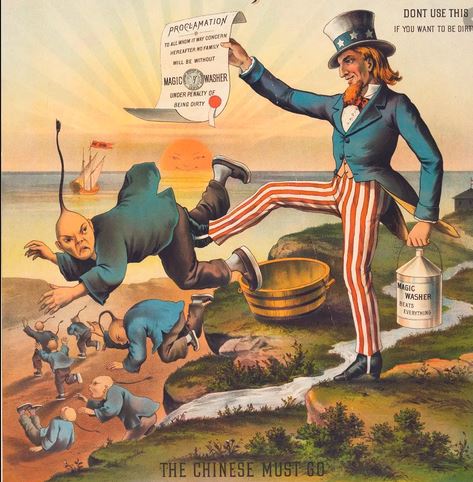The
deeper roots of Chinese demonization
Hegel saw history moving east to west – 'Europe thus
absolutely being the end of history, Asia the beginning'
By Pepe Escobar

Fasten
your seat belts: the US hybrid
war against China is
bound to go on frenetic overdrive, as economic
reports are already
identifying Covid-19 as the tipping point when the Asian
– actually Eurasian – century truly began.
The US
strategy remains, essentially, full spectrum dominance,
with the National Security Strategy obsessed by the
three top “threats” of China, Russia and Iran. China, in
contrast, proposes a “community
of shared destiny” for
mankind, mostly addressing the Global South.
The predominant US narrative in the ongoing
information war is now set in stone: Covid-19 was the
result of a leak from a Chinese biowarfare lab. China is
responsible. China lied. And China has to pay.
The new
normal tactic of non-stop China demonization is deployed
not only by crude functionaries of the
industrial-military-surveillance-media complex. We need
to dig much deeper to discover how these attitudes are
deeply embedded in Western thinking – and later migrated
to the “end of history” United States. (Here are
sections of an excellent study, Unfabling
the East: The Enlightenment’s Encounter with Asia ,
by Jurgen Osterhammel)
Only Whites civilized
Way beyond the Renaissance, in the 17th and
18th centuries, whenever Europe referred to
Asia it was essentially about religion conditioning
trade. Christianity reigned supreme, so it was
impossible to think by excluding God.
At the same time the doctors of the Church were
deeply disturbed that in the Sinified world a very well
organized society could function in the absence of a
transcendent religion. That bothered them even more than
those “savages” discovered in the Americas.
As it started to explore what was regarded as the
“Far East,” Europe was mired in religious wars. But at
the same time it was forced to confront another
explanation of the world, and that fed some subversive
anti-religious tendencies across the Enlightenment
sphere.
It was at this stage that learned Europeans started
questioning Chinese philosophy, which inevitably they
had to degrade to the status of a mere worldly “wisdom”
because it escaped the canons of Greek and Augustinian
thought. This attitude, by the way, still reigns today.